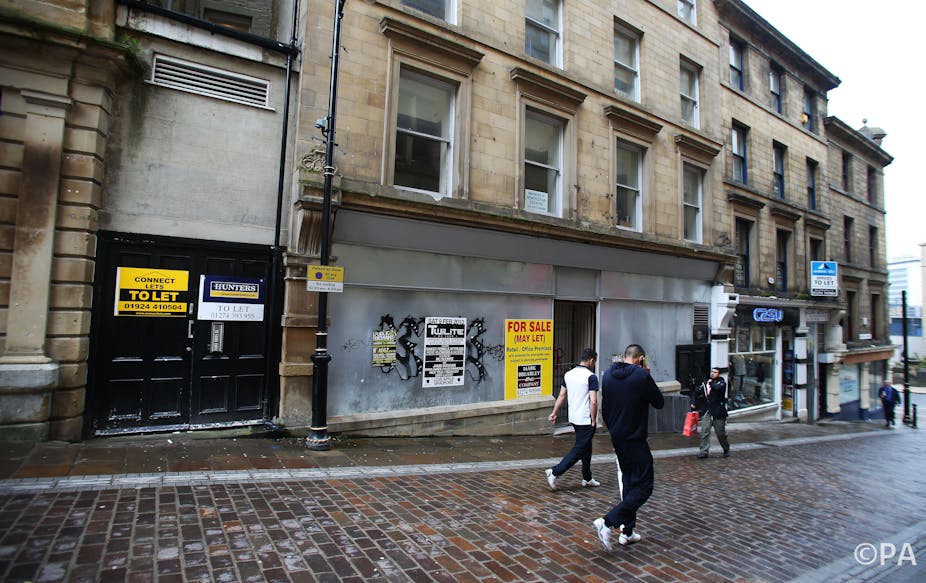A report released yesterday by the Centre for Retail Research (CRR) outlines a very bleak future for the UK high street. A fifth of shops are expected to close in the next five years, with 316,000 job losses across the sector.
Some have pointed the finger at large supermarket chains, but they are not to blame. The retail problems highlighted in the report are caused by a shift towards online shopping, and a lack of disposable income amongst consumers since the start of the recession.
But far from being on its last legs, the high street will adapt to this new reality. A diverse shopping environment, with many different stores all within easy walking distance, remains an attractive destination for consumers. Recent trends show that supermarkets are also betting on this: high streets are here to stay.
Yes, there are winners and losers in the competitive retail market. We have witnessed different levels of development in the country, such as the accelerated growth of out-of-town shopping centres and the takeover by discounters, betting shops and charity outlets in some town centres, yet the fight goes on.
High street roots
The “big four” grocers - Tesco and Sainsbury’s in particular, and Asda and Morrisons more recently - have spent the past two decades repopulating the high street with smaller, local branches. For the major chains, this represents a move back to their heartland, where they all started once upon a time.
Supermarkets tend to know what they are doing, and in this case they have correctly identified the strengths of the traditional high street: convenience, diversity and a sense of community not available in out-of-town locations. Following supermarkets into town centres, smaller clusters of independent and specialist stores are emerging, which help to create a more vibrant and interesting place to shop. This environment is attractive to supermarkets themselves, who want to site their “local” stores in attractive destinations. Boarded up high streets benefit no one.
New realities
But retailers cannot act alone, and local councils and central government both have their part to play. Business rates and rents are still extremely high, linked to the heyday of British retailing when the high street was the only channel to market. Retailers, particularly small and independent ones, are struggling to pay. Rents, together with the provision of adequate and reasonably priced parking, might be outside the control of most retailers but such requirements are necessary for a thriving high street.
In this regard, the so-called “Portas Pilots” - 12 towns chosen for special government-funded high street regeneration - are a welcome initiative. Although many have yet to deliver on the expected impact and benefits highlighted a year ago, they at least draw consumer attention back to the high street and highlight the potential for budding retail entrepreneurs.
After all, shopping is a social activity and regardless of the new age of online shopping, the interaction with friends and family that the shopping trip offers continues to be an important activity in the social diary.
Online shopping will undoubtedly continue to grow, but this too offers a further opportunity for household names on the high street to build stronger relationships with their customers. Brick and mortar retailers recognise that operating in many channels maximises their sales potential. The website has become yet another shop front.
Another reinvention?
Retail has a way of reinventing itself in the UK. From the revolutionary move to self-service, to hypermarket superstores, and now the shift to online shopping, history has shown that both small and large retailers will continue to adapt to the ever-changing market conditions they are faced with. It is what British retailers are good at, and are indeed known for across the globe.
This reinvention means we are likely to see a mixed model of retail emerge from these technological and economic changes. Online shopping, in-store collection, and traditional shops will all have a role to play in this future, and the high street will remain in place.
It has often been said, but it is worth repeating again in light of this debate: “the UK is a nation of shopkeepers”. Don’t expect this to change just yet.

